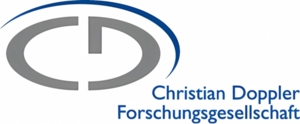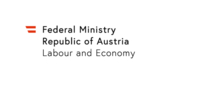Josef Ressel Centre for Knowledge-Assisted Visual Analytics for Industrial Manufacturing Data.
Background
Since the advent of the digital age, the manufacturing industry has collected vast amounts of data. Despite being used in daily operations, the majority of this data is not exploited. However, unearthing this hidden treasure and utilizing it for data-driven manufacturing can optimize designs, processes, and procedures, leading to higher quality, lower cost, and greater sustainability. As many companies lack the expertise to harness this potential, they need guidance to navigate the complexities of data analysis and translate insights into improvements for their manufacturing operations.
Project Content
Turning data into knowledge can be challenging. While computer algorithms can identify trends and visualize information, they often are unable to distinguish between meaningful patterns and mere noise. Human expertise, with its background knowledge and experience, remains crucial for interpreting these patterns. On the other hand, the sheer amount of information can be overwhelming for a human data analyst. Visual Analytics, a relatively young field, can help to fix this dilemma. By combining interactive visualizations with automated analysis, it empowers analysts to discover patterns, trends, and make unexpected discoveries.
Goals
The overarching goal of our research is to create Knowledge-Assisted Visual Analytics (KAVA) methods for extracting valuable insights from industrial manufacturing data. These insights are then used as a foundation to improve and streamline planning and manufacturing processes, resulting in higher product quality.
This is a highly complex endeavor from both the research and the application perspectives, and it includes:
- Knowledge encoding and management methods
- Interactive, visual knowledge specification methods
- Knowledge-assisted visualization and interaction methods
The following research questions are to be answered during the runtime of the research centre:
- How can explicit knowledge (i.e., knowledge that can be readily articulated, formalized, codified etc. and shared among people) be defined by technicians and/or non-data scientists?
- How can knowledge be extracted from existing data?
- How to ensure trust & validity in explicit knowledge?
- How can context-specific knowledge be created that supports users in completing a specific task?
- How can explicit knowledge and associated data be visualized for users?
- What visualization and interaction methods are most effective for integrating expert knowledge in exploring manufacturing data?
- How to facilitate collaboration in problem-solving processes?
- How can the knowledge provenance (i.e, origin, history of knowledge) be modelled and made accessible?
Methods
Overall, we follow the design science research methodology, which places high value on both scientific rigor and practical applicability. Additionally, we employ a mixed-initiative interaction approach based on the framework of Action Design Research. This framework provides guidelines for the entire design process, facilitating the creation of viable outcomes while allowing ample room for reflection and generalizable solutions. Our methodology involves collaboration with domain experts and encompasses iterative cycles of building/creating, intervention, and evaluation.
Together with our consortium partners from academia and industry we agreed on focusing our research efforts on three use cases that can be generalized for the entire manufacturing industry at the end of the project. The first use case revolves around optimizing machine settings for new products throughout production runs to enhance quality and efficiency. The second use case is about leveraging data to pin down market driven factors and market demands to enable improved production planning. Finally, in the last use case we intend to identify root causes of errors and malfunction in complex manufacturing processes in order to minimize downtime and scrap.
Results/Added Value
We are developing new, sophisticated methods to gain better insights from industrial manufacturing data. These methods integrate expert knowledge and facilitate knowledge sharing within and between companies. Incorporating the methods into manufacturing processes gives participating companies a competitive advantage. Furthermore, the JRZ fosters strategic alliances between companies and academia, strengthening existing partnerships and establishing new connections with industry partners, which are intended to be maintained beyond the project's duration. The project outcomes not only hold practical value but also contribute to new scientific advancements in the fields of Visual Analytics and semantic technologies.
Further Information on the Project
Partners
Josef Ressel Centres
The Christian Doppler Research Association (CDG) supports establishing and operating Josef Ressel Centres (JR Centres) at universities of applied sciences. Application-oriented research at a high level is funded. Through cooperation with companies, new impulses are given and the state of knowledge in the respective research areas is increased. In this way, research strengthens innovation and general competitiveness in Austria.
The JR Centres are financed equally by public funds (funds from the Ministry of Economic Affairs and the “Nationalstiftung für Forschung, Technologie und Entwicklung” -National Foundation for Research, Technology and Development) and by contributions from CDG member companies.
You want to know more? Feel free to ask!
Education Coordinator
Media and Digital Technologies
Course Leader Agricultural Technology (acad.)
Course Leader Certified Professional for UX-Development (certif.)
Course Leader Digital Photography and New Visual media (MA)
Course Leader Production Management (acad.)
Head of Josef Ressel Center for Knowledge-Assisted Visual Analytics for Industrial Manufacturing Data
Member of the UAS Board from 2023 to 2026
Department of Media and Digital Technologies
Publikationen
- FH-Prof. Dr. Thomas Moser
- Dipl.-Ing. Mag. Alexander Rind
- FH-Prof. Dr. Thomas Felberbauer MSc
- Dipl.-Ing. Dr. Christina Stoiber BSc
- Dipl.-Ing. Stefanie Größbacher BSc
- Dipl.-Ing. Adrian Jaques Böck BSc
- Natascha Beatrice Kriegler BA
- Dipl.-Ing. Jan Vrablicz BSc
- Dipl.-Ing. Laura Kainzbauer BSc
- Florian Grassinger BSc MSc
Annika Felbermeyer
- Greiner Packaging International GmbH
- Welser Profile
- STIWA Holding GmbH
- Schmid Schrauben Hainfeld




